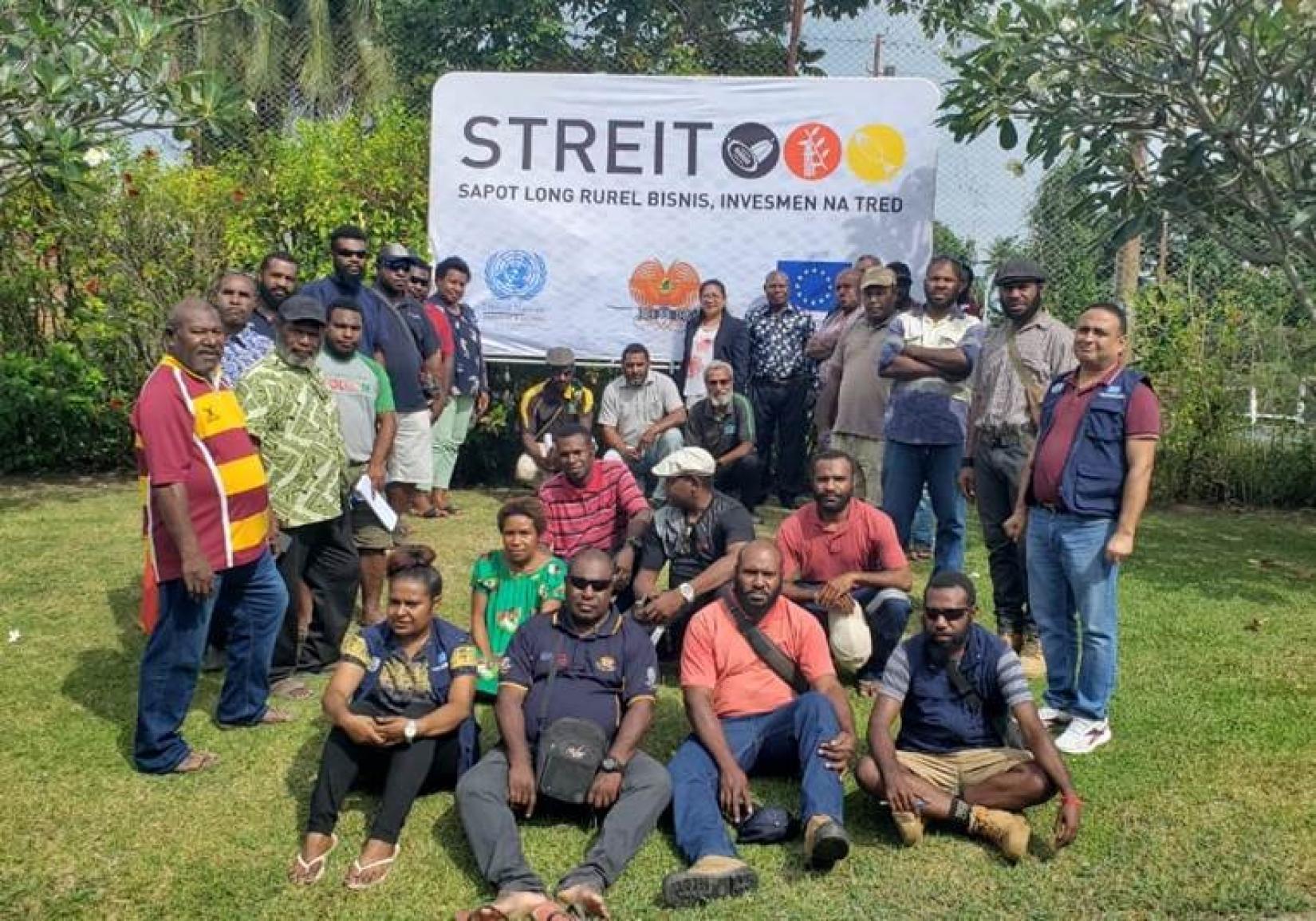Working with partners to develop local quality human resources for rural transport infrastructure works in Papua New Guinea
27 April 2022
|
Under the EU Funded UN Joint STREIT PNG Programme, the International Labour Organization (ILO) rolls out an intensive capacity development program targeting engineers and managers of National and Provincial Departments of Works and local contractors in East Sepik and Sandaun provinces.
|
|
Wewak, Papua New Guinea – Forty engineers, including two women, attended 3 days capacity development training conducted in collaboration with the Civil Engineering Department of the PNG University of Technology (UNITECH).
Among the civil service engineers and sub engineers were company directors/managers, CEOs and officers of Provincial Division of Works, ESP, National Department of Works and Highway, Wewak, who deal with contract management and administration for road infrastructure works.
“The program aims to transfer knowledge and skills on Contract Management, Administration and Claims and Dispute resolution to officials and developing quality human resources in the field of road transport infrastructure, as well as to develop the capacity of local contractors to implement quality road works on time for the EU-STREIT PNG Programme in the Sepik Region,” explained Mr. Arun Kumar Yadav, ILO’s Training Engineer, who led this capacity development training.
Naomi Duna, a 32-year-old lady, was one of the two women participants in this intensive training. “I’m a director in the company, not an engineer, but I learned many good things. This course gives me a fair idea of the contract management and administration to complete quality works as per contract on time with no cost overrun. I can now advise if engineering work is not done properly,” said Naomi.
These 3 days training is the first of seventeen modules envisaged by the EU-STREIT PNG Programme to upskill local engineers and contractors in 2022. The next training will be hosted by UNITECH at the Lae East Taraka Campus.
Some important topics covered in this training include: Quality assurance and control of roads and crossing structure; Contract management, administration, dispute resolutions and arbitration; Occupational safety and health at construction sites.
Concluding the training, the EU-STREIT PNG Programme Coordinator, Dr Xuebing Sun, after the presentation of certificates, shared with participants the importance of learning, which he says does not stop and called on the participants to continue to explore how best they can improve their practice to deliver quality road transport infrastructures in the country.
The Programme Coordinator also acknowledged the Civil Engineering Department of UNITECH for the collaboration, and emphasised the sustainability aspect of the EU-STREIT PNG Programme which is also aimed at supporting and enhancing the capacity of local institutions to provide capacity development programs for engineers and local contractors, not only in the Sepik Region but in Papua New Guinea as a whole.
Extending on the benefits of this capacity development course, the East Sepik Deputy Provincial Administrator, Mr James Bololoi, and East Sepik Provincial Works Manager, Mr John Posagi also emphasized that this kind of training for contractors will enhance the capacity of local contractors in the Province to compete the contract and deliver quality service and works.
As part of the EU-STREIT PNG Programme’s mandate to support capacity development, this collaboration with PNG UNITECH will also fulfil the PNG government’s requirement to develop professional transport infrastructure contractors in the country.
The EU-STREIT PNG Programme, being implemented as a UN Joint Programme (FAO as the leading agency, and ILO, ITU, UNCDF and UNDP as partners), is the largest grant-funded Programme of the European Union in the country and the Pacific region. The Programme aims to help improve the lives of the people from East Sepik and Sandaun provinces, by focusing on increasing sustainable and inclusive economic development of rural areas through improved economic returns and opportunities from cocoa, vanilla and fishery value chains while strengthening and improving the efficiency of value chain enablers, including the business environment, and supporting sustainable, climate-proof transport and energy infrastructure development. 
Caption: Working with partners to develop local quality human resources for rural transport infrastructure works in Papua New Guinea
Photo: © STREIT Communications Team (FAO)
|




